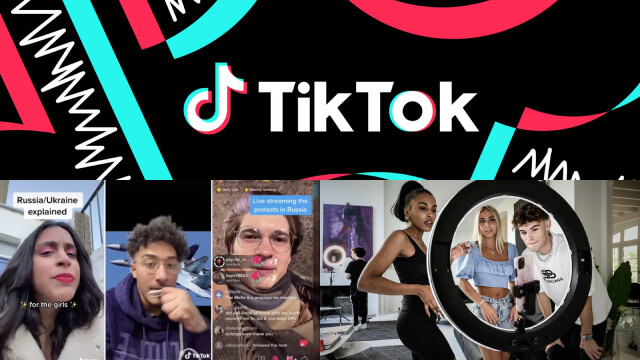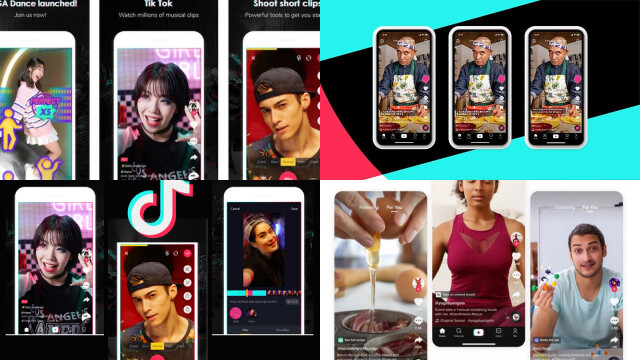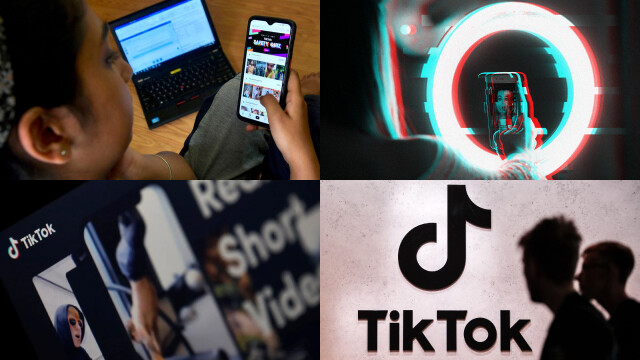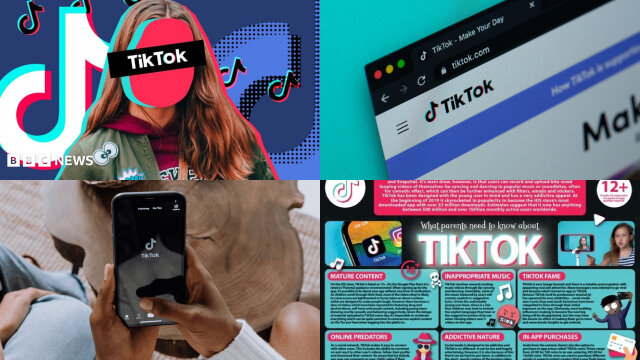Introduction to TikTok and Its Popularity
TikTok is a social media app that allows users to create and share short videos set to music or other audio. It was first launched in China in 2016 under the name “Douyin,” before expanding to other markets as “TikTok.”
Since its launch, TikTok has rapidly gained popularity, especially among younger generations. As of 2021, it has over 1 billion active users worldwide, making it one of the most popular social media platforms.
One of the reasons for TikTok’s success is its algorithm, which uses machine learning to personalize content for users based on their preferences and engagement. Additionally, TikTok’s easy-to-use video creation tools and the ability to quickly share content with others have made it an appealing platform for creators and influencers.
Despite some concerns about data privacy and security, TikTok’s popularity shows no signs of slowing down. It has become a cultural phenomenon, with viral dance trends, comedy skits, and even educational content all finding a place on the app.
You might also like: Grab a TikTok Account With the Official App
The Data Collected by TikTok and Its Parent Company
TikTok has faced scrutiny over the data it collects from its users, as well as its parent company, ByteDance. Like many social media platforms, TikTok collects a variety of data from users, including device information, location data, and browsing history. It also collects data on user interactions, such as likes, comments, and shares.
Concerns have been raised about the potential for this data to be accessed or shared with third parties, particularly the Chinese government due to ByteDance’s ownership. TikTok has repeatedly denied any such access or sharing, and has emphasized that its data is stored in the United States and Singapore, with backup copies in other regions.
TikTok has also made efforts to be more transparent about the data it collects, including releasing regular transparency reports and allowing users to see and control their own data through its privacy settings. However, some critics argue that more needs to be done to protect user privacy and ensure that data is not misused or accessed by unauthorized parties.
How TikTok Collects User Data Even When It’s Not in Use
TikTok has been accused of collecting user data even when the app is not actively in use. This is due to a feature called “app activity,” which allows TikTok to collect data on users’ behavior on their mobile devices, even when the app is closed.
For example, TikTok can collect data on what other apps a user has installed, how long they spend on those apps, and what types of content they engage with. This information is then used to personalize content on TikTok and improve its algorithm.
While TikTok has defended this feature as necessary for the app’s functionality, critics have raised concerns about the potential for this data to be misused or accessed by unauthorized parties. Some have called for more transparency and user control over this type of data collection.
To limit TikTok’s collection of user data, users can disable the app activity feature in their device’s settings or limit TikTok’s access to other apps. However, this may also limit the app’s functionality and personalization.
How TikTok Uses Your Data and Why It’s Dangerous
TikTok collects a wide range of user data, including personal information, device information, and browsing history. This data is used to personalize content and advertisements, as well as to improve the app’s algorithm.
However, there are concerns about the potential dangers of this data collection. First, there are concerns about data privacy, as the data collected by TikTok could potentially be accessed or shared with third parties without user consent. Second, there are concerns about the use of this data for targeted advertising, which some argue can be manipulative and even harmful.
Moreover, TikTok’s ownership by a Chinese company has led to fears that user data could be accessed or shared with the Chinese government. Although TikTok has repeatedly denied any such access or sharing, some countries have banned the app or imposed restrictions on its use.
Overall, while TikTok’s data collection is intended to improve the user experience, it is important for users to be aware of the potential risks and take steps to protect their privacy and personal information.
The Risks of Sharing Personal Information on TikTok
Sharing personal information on TikTok can pose risks to users’ privacy and safety. When users share personal information, such as their full name, location, or contact information, it can make them vulnerable to identity theft, stalking, and other forms of online harassment.
Moreover, TikTok’s algorithm uses this personal information to tailor content and advertisements to each user, which can create a “filter bubble” that reinforces existing biases and limits exposure to diverse viewpoints.
Additionally, TikTok’s ownership by a Chinese company has raised concerns about the potential for user data to be accessed or shared with the Chinese government. While TikTok has repeatedly denied any such access or sharing, this risk cannot be entirely dismissed.
To protect their personal information, TikTok users should be cautious about what information they share on the platform and limit the amount of personal information they provide. They should also regularly review and adjust their privacy settings to ensure that their information is only being shared with trusted sources.
The Security Risks of Using TikTok on Your Device
Using TikTok on your device can pose security risks, particularly if you are using an older or unsecured device. For example, TikTok has been known to collect data on users’ browsing and device activity, which can potentially be accessed or shared with third parties.
Additionally, there have been concerns about the potential for malicious actors to use TikTok to spread malware or conduct phishing attacks. These risks are particularly high for users who click on links or download files from unverified sources on the platform.
To protect yourself from these risks, it is important to use a secure device and keep your software and security measures up-to-date. You should also be cautious about clicking on links or downloading files from unverified sources on TikTok, and regularly review and adjust your privacy and security settings to limit the amount of data that is being collected and shared.
The Controversies and Legal Issues Surrounding TikTok’s Privacy Policies
TikTok has faced numerous controversies and legal issues surrounding its privacy policies. In 2020, the app was banned in India due to concerns over national security and data privacy. The United States government has also expressed concerns over the app’s data collection and ownership by a Chinese company.
Moreover, TikTok has been accused of violating children’s privacy laws by collecting data on users under the age of 13 without parental consent. In 2019, the app was fined by the Federal Trade Commission in the US for this violation.
TikTok has made efforts to address these concerns, including publishing transparency reports and implementing new privacy policies. However, these efforts have not always been sufficient to satisfy regulators and users alike.
Overall, the controversies and legal issues surrounding TikTok’s privacy policies highlight the need for greater transparency and accountability in the way that apps collect and use user data.
Alternative Social Media Platforms: Privacy-Focused Options to TikTok
As privacy concerns continue to grow, many users are seeking alternative social media platforms that prioritize data security and privacy over invasive practices. While TikTok is immensely popular, it’s not the best choice for privacy-conscious individuals. Here are some alternative social media platforms that prioritize privacy:
- Signal: Originally known for its encrypted messaging app, Signal has recently introduced features for group chats and stories. It’s renowned for its strong commitment to user privacy and end-to-end encryption.
- Telegram: Offering secure messaging and file sharing, Telegram is a widely-used platform that also enables you to create public or private channels.
- Mastodon: An open-source, decentralized social network, Mastodon focuses on user control. You can join an existing instance or create your own with specific rules and privacy settings.
- MeWe: Marketed as the “Next-Gen Social Network,” MeWe emphasizes data privacy and user control, and it provides an ad-free experience.
- Vero: Vero promotes itself as an ad-free, subscription-based social network with a chronological feed and strong user privacy controls.
- Diaspora: Another decentralized social media platform, Diaspora lets you connect with others on pods, each with its own rules and privacy settings.
- Session: Session is a privacy-focused messaging app that doesn’t require a phone number or email address for registration, ensuring true anonymity.
- Zuckerberg’s Projects: Instagram and Facebook, both owned by Meta Platforms, offer privacy-focused features, like end-to-end encryption for Instagram’s direct messages.
By exploring these alternatives, you can enjoy social media interactions while keeping your personal data and privacy under your control. Privacy-focused platforms are gaining popularity as users become more conscious of the information they share online.
Tips for Staying Safe While Using TikTok and Protecting Your Privacy
Staying safe while using TikTok and protecting your privacy requires a combination of caution, awareness, and proactive measures. Here are some tips to help you stay safe on the app:
- Adjust your privacy settings: Make sure that your account is set to private and limit the information that you share with the public.
- Be careful about sharing personal information: Avoid sharing sensitive or identifying information on TikTok, such as your full name, phone number, or address.
- Watch out for scams: Be wary of suspicious links or requests for personal information, and report any suspicious activity to TikTok.
- Use strong passwords: Use a unique and complex password for your TikTok account, and avoid using the same password across multiple accounts.
- Stay up-to-date on privacy policies: Regularly review and understand TikTok’s privacy policies and terms of service to stay informed about any changes or updates.
By following these tips, you can help protect your privacy and stay safe while using TikTok.





